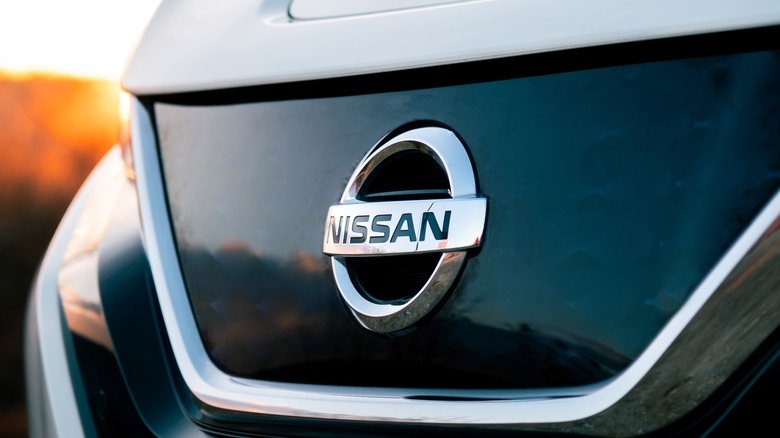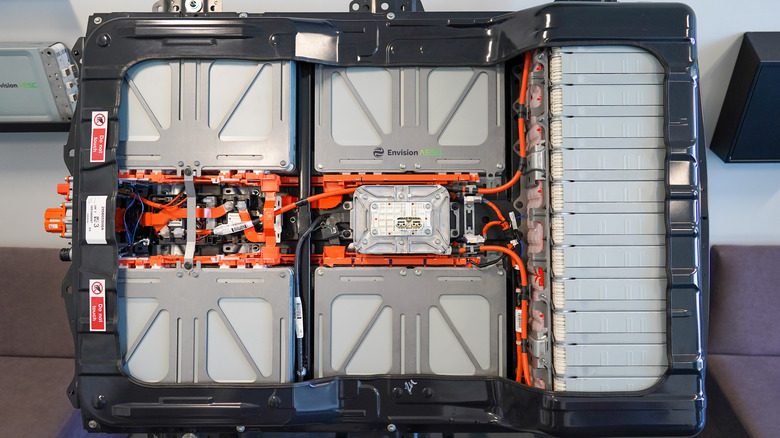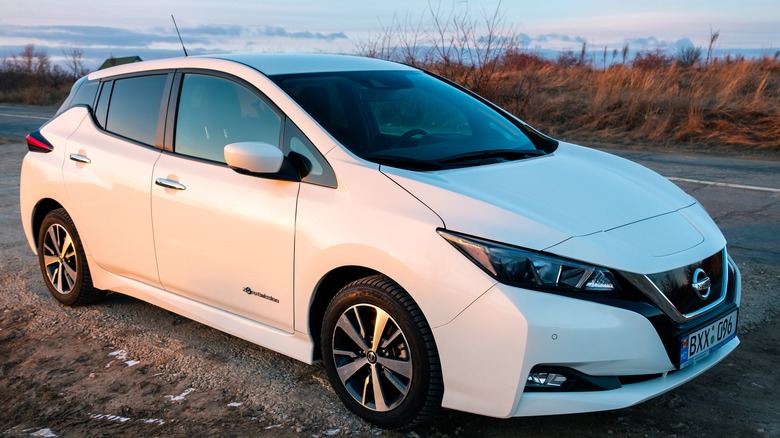The Nissan Leaf Battery Costs More To Replace Than You Think
Since it first went on sale in the U.S. in late 2010, the Nissan Leaf has been one of the more popular and affordable EVs on the market. In fact, according to Inside EVs, Nissan has sold over 170,000 Leaf models to customers in the U.S. with sales in the first three months of 2022 totaling 4,371 units. As we recently noted, the 2022 Nissan Leaf is arguably an EV bargain, with its price coming down to under $20k when combined with the federal tax credit for EVs before destination fees. This will net you a 40 kWh battery pack in tandem with a 110 kW electric motor. As we noted in our review of the 2020 model, its range of around 151 miles is good enough for most drivers, while it has also grown up a lot with its styling.
Affordable upfront, but there's a sting in the tail
While the Nissan Leaf has a relatively attractive starting price for a fully electric car when compared with the competition, it still uses a similar battery pack to more expensive electric cars. This means that as a proportion of its original new price, the battery pack replacement cost is going to be higher, relatively speaking, than EVs with higher starting prices. While the Leaf can be had for under $20k, the cost of a replacement 40 kWh battery ranges in price from $6,500 to $7,500 (via Recurrent Auto). That works out at around 37.5% of the price of an all-new model.
That said, the price of Battery Electric Vehicle (BEV) packs, as they are also known, has fallen by 89% in real terms over the past decade (via Bloomberg NEF). According to Bloomberg NEF, BEVs were priced at approximately $1,100/kWh in 2010, and by 2020, this had dropped to just $137/kWh. This has also been reflected in the starting price of new EVs which also continues to become more affordable. The price of BEVs per kilowatt-hour is on track to drop to as low as $100/kWh by 2023, which will not only mean increasingly affordable EVs, but should also result in lower-priced BEVs when it comes time to replace one that is out of juice.
Tips for extending your Nissan Leaf BEV
Even with BEV prices dropping, you can manage to delay the inevitable by taking particular care of your Leaf's BEV. While we are used to topping up gasoline-powered cars at the pump to full, this is not advised for BEVs, as Driving Electric explains. The reason for this is that continually charging lithium-ion batteries to 100% can cause them to degrade more quickly than they otherwise might. Ideally, you should only let your Leaf's battery run down to between 10 to 20%, then recharge it to around 80% maximum.
Similarly, lithium-ion batteries can get warm, and the warmer they get, the more likely they are to degrade. This means that it is probably a good idea to keep your Leaf parked in the shade or a garage, particularly in warmer weather. Similarly, because charging your Leaf's battery will also cause it to warm up, it is best to avoid charging it immediately after a lengthy drive and let it have a chance to cool down first. Rapid chargers are good for a quick top-up, but these too cause a lot more heat to be generated, again leading to increased battery degradation if used too often. Looking after your Leaf's battery means that you could enjoy a solid 10-year run out of it before you need to replace its BEV.


